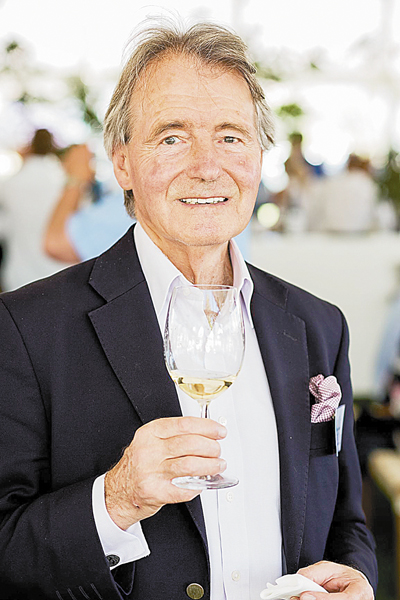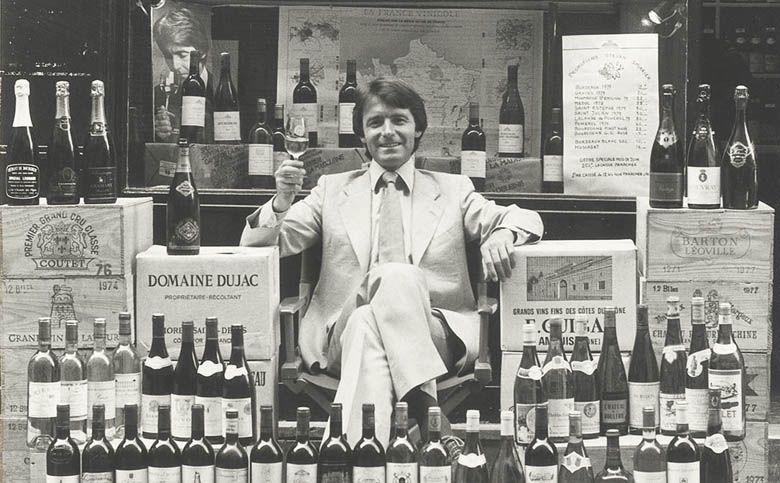Q&A: Steven Spurrier
British wine icon talks IPNC and books
Steven Spurrier joined the wine trade in London in 1964. He later moved to Paris, where he bought a wine shop in 1971 and, two years later, opened L’Academie du Vin, France’s first private wine school. Spurrier staged the historic 1976 blind tasting between wines from California and France, “The Judgment of Paris.” In the ’80s, he wrote several wine books and created the Christie’s Wine Course with then-senior wine director Michael Broadbent. In 1988, Spurrier returned to the U.K. to focus on writing and consulting for companies, including Singapore Airlines. He’s won several awards, including Le Personalité de l’Année in 1988 for services to French wine and the Maestro Award in honour of California wine legend André Tchelistcheff in 2011. Spurrier is president of the Circle of Wine Writers as well as founder of the Wine Society of India. He also serves as consulting editor for Decanter Magazine.
What was your overall impression of the IPNC? Any favorite moments?
SS: IPNC was incredibly well organized, and I felt at home from the very first moment. Everyone seemed happy to be there, many had been coming for years, and only on the last evening did I have a fixed table, so at all the other meals just joined a table where there was a free place and was treated as part of the family. I have to say that the wine waiters recognised me and perhaps more wines were brought to the table than might have been, but this is a perk of the job.
What was your overall impression of the Oregon wines you tasted?
SS: Quite simply that they were just very good to drink. The Pinots, of course, but also Chardonnay, Pinot Blanc (one of my favourite varietals) and Riesling. They were all different but recognisably Oregon, i.e. more made in the vineyard than in the cellar. Egos, either of the owner or the winemaker, seemed to be rerfreshingly absent, perhaps because Oregon is a farming community and farmers respect the land.

For those who were not at the IPNC, what did you express in your speech?
SS: The theme was “Côte Chalonnaise, the 3rd Côte”. Burgundy is known as la Côte d’Or, the ‘golden slope’ and in the Côte d’Or there is the Côte de Nuits to the north, the Côte de Beaune in the middle and the Côte Chalonnaise to the south, each region sort of running into each other and all planted almost exclusively to Pinot Noir and Chardonnay with a little Aligote and Gamay. The Côte Chalonnaise has always suffered from a ‘poor relation’ image and the tasting was to prove that this was no longer the case. Eight wines were shown, an Aligote from Bouzeron, a Chardonnay from Rully, a Pinot Noir from Rully, two Pinots from Givry and two Pinots from Mercurey, the largest and best-known appellation. The wines were very well described by the panel, and it was plain to all that they represented excellent value for money. My comment on both days that this was good, but that ‘value for pleasure,’ the real key to the wines of the Côte Chalonnaise, was well-received.
Can you tell me a bit about your new publishing company and how it came about?
SS: The new publishing company is called the Academie du Vin Library, and the idea came about due to the (in my view) poor sales of my memoirs “Wine, a Way of Life.” Having been published in June with a 4,000 print run, by September, only 2,000 copies had been sold of which I had personally sold and signed over half. I concluded that book stores weren’t interested in selling wine books, that most books were just tastings and rankings or important reference books, and what had happened to the “literature” of wine, the books written about history, places and especially the people who are involved. I put this to my old friend Hugh Johnson, Britain’s best wine writer, while Jancis Robinson is the best wine critic and communicator, and he agreed that it had been lost. I had recently recuperated the name Academie du Vin, the wine school I founded in Paris in 1973, and we agreed that this would be a good vehicle for a whole range of wine books, some reprints from the past, some creations from the present and some ideas for the future. We will not sell to book stores neither via Amazon, but directly via a network of distributors, to the public. Our print runs will be small, easily renewed, and. once we have published a book, we do not intend to see it go out of print. The first title was Michael Broadbent’s “Wine Tasting,” as fresh and seminal today as it was when first published 50 years ago. By the end of the year, we will have five books out, including an annual anthology of the best of wine writing from the past, present and for the future, under the title “In Vino Veritas.” I could not be more excited to have put this into motion and really feel that the range will be well received by readers who like to relax with a book and a glass of wine.
What is your all-time favorite wine book? Why?
SS: Impossible to answer, but I can say that I have two heroes in my life in wine: Michael Broadbent, who was my mentor and where all my work in wine education began, and Alexis Lichine, who was more famous as a wine producer in Bordeaux and Burgundy, but who was better known to me in the 1960s as a wine writer, one who described wine from the inside, from grape to glass. So, even though I haven’t read it for perhaps 50 years, I would choose Alexis Lichine’s “The Wines of France” as my all-time favourite wine book.










